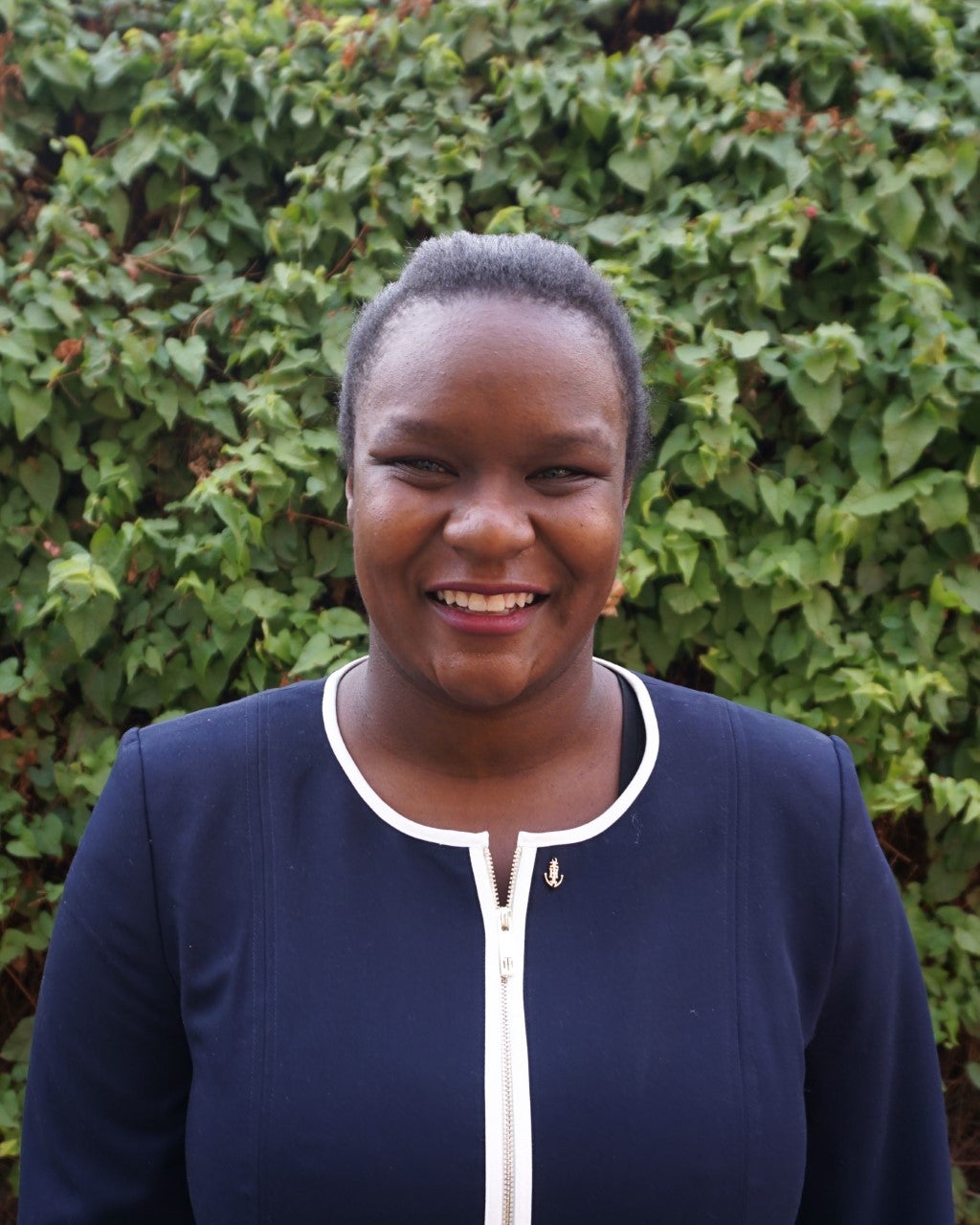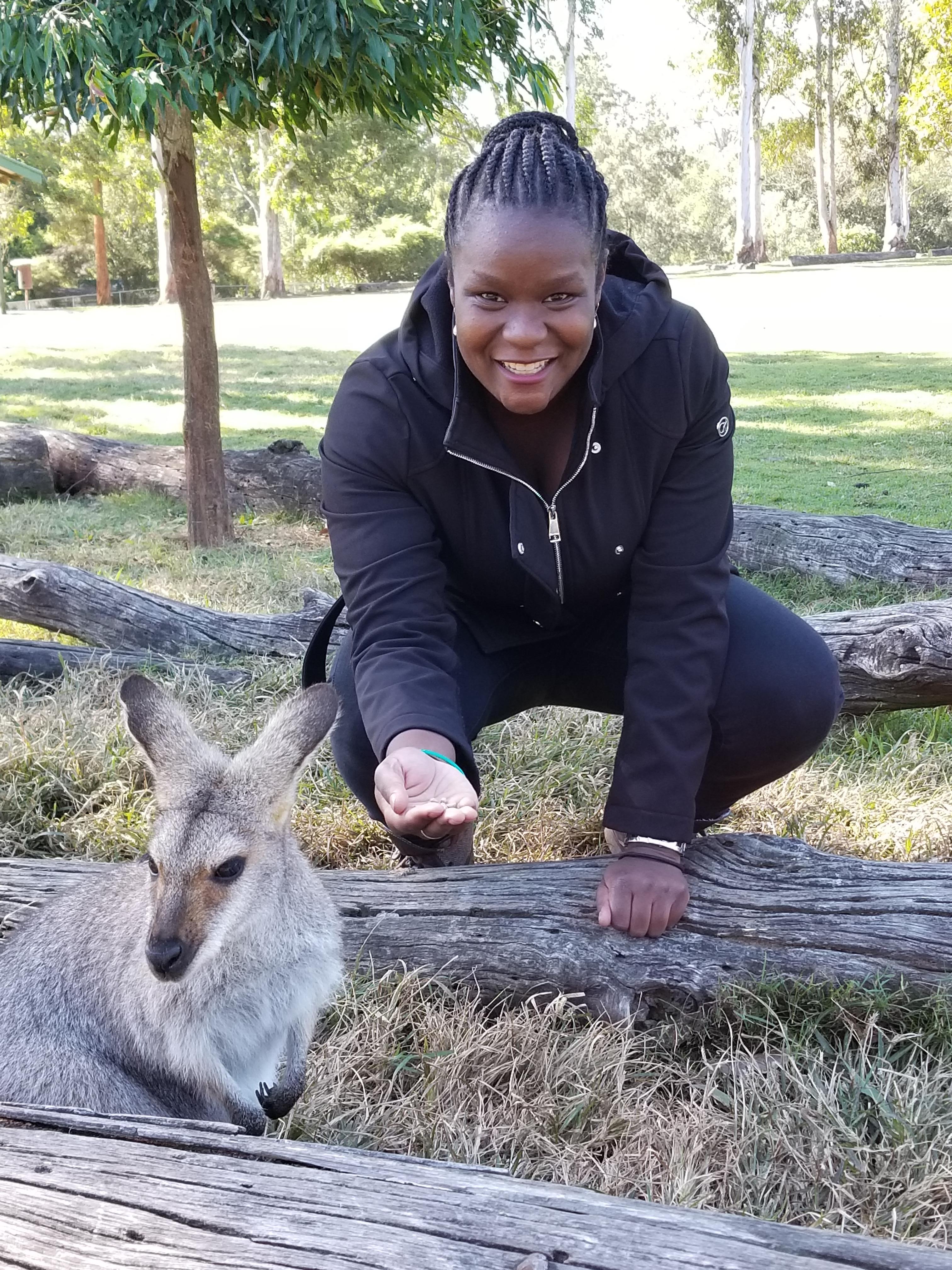Global health student finds passion, mentors and more at ASU

Kibuka Musoke stands on sea cliffs on an Australia study abroad trip.
Editor’s note: This is part of a series of profiles for spring 2019 commencement.
For Paula Kibuka Musoke, college has been about pushing herself out of her comfort zone. As a native of Norway, it’s hard to imagine a more drastic climate difference than the desert of Arizona, and yet that is exactly where she chose to make her academic home.
Once here, she continued to open herself to new experiences. In her freshman year, she joined GlobeMed, a student-run nonprofit that helps impoverished communities. There, she not only found a passion for global health, but eventually became the organization’s co-president.
“GlobeMed gave me confidence to become a student leader,” she said.
She also worked with ASU’s Sexual and Relationship Violence Prevention Program and traveled to yet another far corner of the world on an Australia study abroad trip.
While her experiences have been unique, the good advice she’s gleaned from them is universal.
“Follow your passion, be open to new experiences and find someone who can be your champion,” she said.
As she prepares to graduate this spring, Kibuka Musoke answered questions about her ASU journey and her next steps.
Question: What was your “aha” moment, when you realized you wanted to study the field you majored in?
Answer: I realized I wanted to major in global health was when I started working as an intern for the Center for Global Health. I learned how vital social science is to health care and why the human perspective is just as important as the scientific perspective.
Q: What’s something you learned while at ASU — in the classroom or otherwise — that surprised you, that changed your perspective?

Paula Kibuka Musoke pushed herself out of her comfort zone at ASU.
A: Working at the Sexual and Relationship Violence Prevention Program at ASU changed my perspective on the problems I see in the world and gave me hope that we can change it through education.
Our program believes that a public health framework can be used to combat public health issues from happening. People influence other people, and if we can just educate a person and have a conversation about why sexual violence is not futile and can be prevented, then that person can influence another person and then another.
It is important that we look at the world (as having) a bright future rather than a futile one.
Q: Why did you choose ASU?
A: I am from Norway, and during my sophomore year of high school, my stepfather took a sabbatical here at ASU. I loved it so much that I decided to come back for college.
Q: Which professor taught you the most important lesson while at ASU?
A: I have three mentors: Professor Amber Wutich, Associate Professor Monica Gaughan and Associate Professor Katie Hinde, and they have supported, encouraged and advised me to make choices that were right for me. The most important thing that I learned from them is that there are many different ways to make a difference within the field of global health, but it must be done responsibly. I am so grateful to have them as my mentors, and my college experiences would not have been the same without them. Having people to support you is crucial to your success!
Kibuka Musoke feeds a wallaby at an animal sanctuary in Australia.
Q: What’s the best piece of advice you’d give to those still in school?
A: I was constantly scared to pursue my passion for global health, but I know now that it is important to pursue what you love. If I had not been open to new experiences, I never would have joined GlobeMed or become its co-president. I would have never worked for the Center for Global Health and met the most incredible teachers and mentors. And I would have never studied abroad in Australia, which was the most amazing experience I have ever had.
Q: What was your favorite spot on campus, whether for studying, meeting friends or just thinking about life?
A: My favorite spot on campus is the School of Human Evolution and Social Change building, because that is where I hang out with my friends, study and work in the lab. It is quite peaceful and enjoyable.
Q: What are your plans after graduation?
A: My plans after graduation are to pursue a Master's of Public Health at Columbia University. I am not sure yet what I want to do career-wise with that degree, but I know that I want to work internationally.
Q: If someone gave you $40 million to solve one problem on our planet, what would you tackle?
A: I would tackle sexual violence as a public health problem. It is completely preventable, and I believe if we could put all our efforts into that, then we could prevent a lot of pain and suffering for everyone involved.
More Arts, humanities and education

ASU workshop trains educators, professionals from marginalized communities in disaster science
As devastating as hurricanes can be to anyone caught in their paths, they strike marginalized communities even harder.To address…

ASU’s Humanities Institute announces 2024 book award winner
Arizona State University’s Humanities Institute (HI) has announced “The Long Land War: The Global Struggle for…

Retired admiral who spent decades in public service pursuing a degree in social work at ASU
Editor’s note: This story is part of coverage of ASU’s annual Salute to Service.Cari Thomas wore the uniform of the U.S. Coast…
